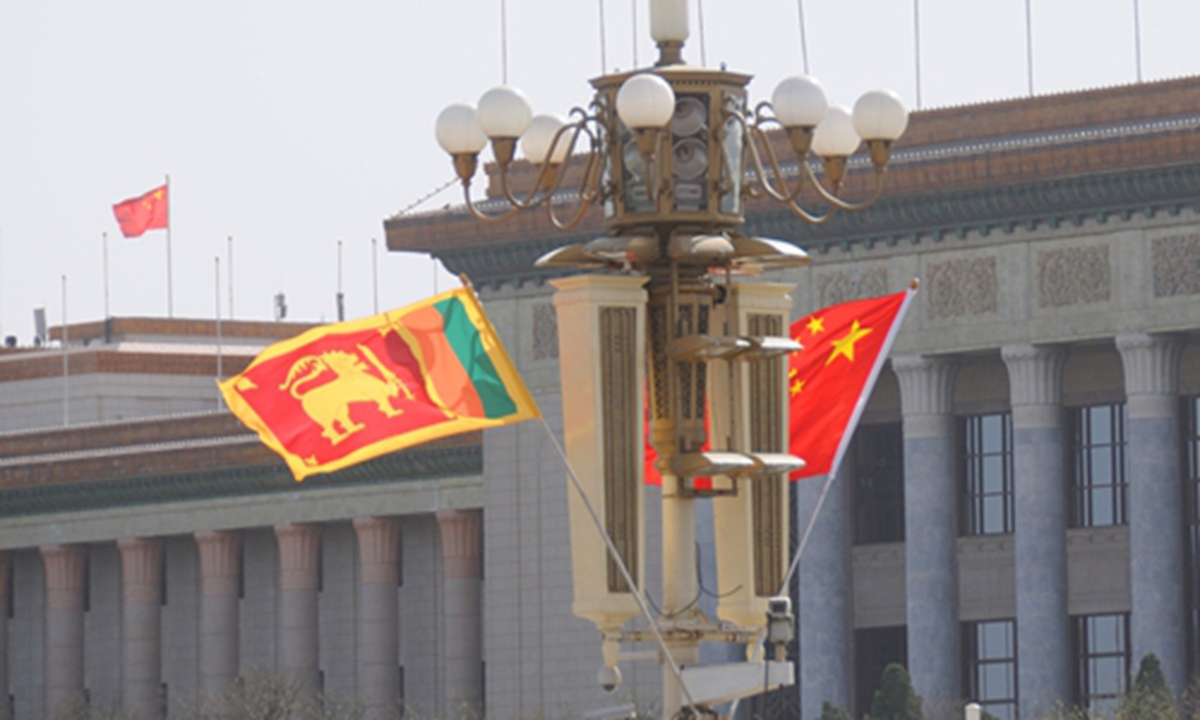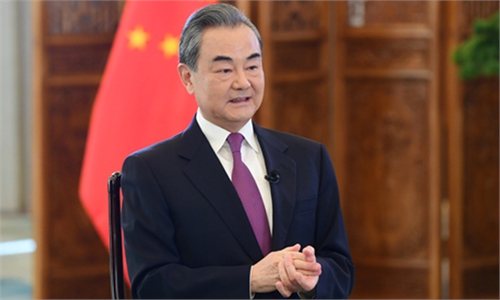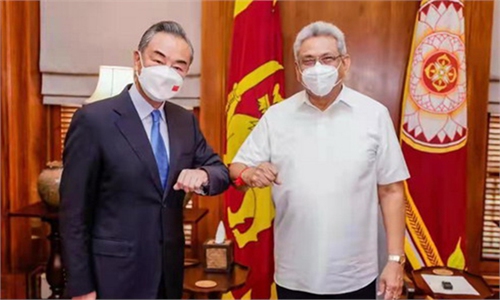
Photo: IC
During a meeting with Chinese State Councilor and Minister of Foreign Affairs Wang Yi in Colombo on Sunday, Sri Lanka's President Gotabaya Rajapaksa asked China to restructure its debt repayments as part of an effort to help the South Asian country navigate its worsening financial situation, according to a statement from the president's office.Sri Lanka has been facing severe economic difficulties in recent months, struggling on the verge of default due to a foreign exchange crisis, according to media reports. So its request for help in debt restructuring has undoubtedly shifted the focus of international attention on its debt woes toward China's involvement. That could be seen as both a test and an opportunity for China-Sri Lanka cooperation.
Despite disruptions caused by external forces such as India and the West, China has maintained friendly relations toward Sri Lanka and the two countries have carried out extensive economic and trade cooperation over the years, particularly under the Belt and Road Initative (BRI). Certainly, China does not want to see Sri Lanka plunge into an economic crisis and would help wherever it can. However, what caused Sri Lanka's debt woes and how China can help should be objectively evaluated.
It should be noted that China is only Sri Lanka's fourth biggest lender, behind international financial markets, the Asian Development Bank and Japan. But the strange thing is that the West has said little about the other lenders and has instead been hyping up the so-called debt trap theory about Chinese projects. For instance, the lease of the Hambantota Port to China has long been painted by Western forces as a prime example of China's "debt trap," even though both China and Sri Lanka said it's purely commercial.
The West's smearing of China's role in Sri Lanka's debt actually reflects its narrow-minded understanding of financing to the developing world and the predatory logic of Western capital expansion. Sri Lanka has a history of being colonized and deprived of self-determination by the West, which now assumes that China is doing the same.
In reality, China is doing the opposite of what the West has done to Sri Lanka. With China's support, Sri Lanka has embarked on a massive infrastructure construction program, which the West has never supported. It is no secret that weak infrastructure has long been one of the main obstacles to Sri Lanka's social and economic development. And the BRI is aimed at improving the country's connectivity, which will be crucial for the country to integrate into the global trade.
During this process, certain levels of debt are inevitable, but it would be completely misleading if someone attributes Sri Lanka's debt problem solely to China. Only a proper understanding of the nature of Sri Lanka's debt problem could lead to an effective solution.
Fundamentally speaking, for developing countries like Sri Lanka, their debt problems are actually a reflection of their development obstacles that hamper them from deploying borrowed money into effective production and foreign exchange earnings.
In this sense, if China is to help Sri Lanka, a solution aimed at addressing the latter's inherent economic challenges would be necessary, otherwise debt reduction or relief will not solve the root cause. Therefore, apart from coordinating debt issues with China, what Sri Lanka needs the most is help from China on bolstering its economic development.


